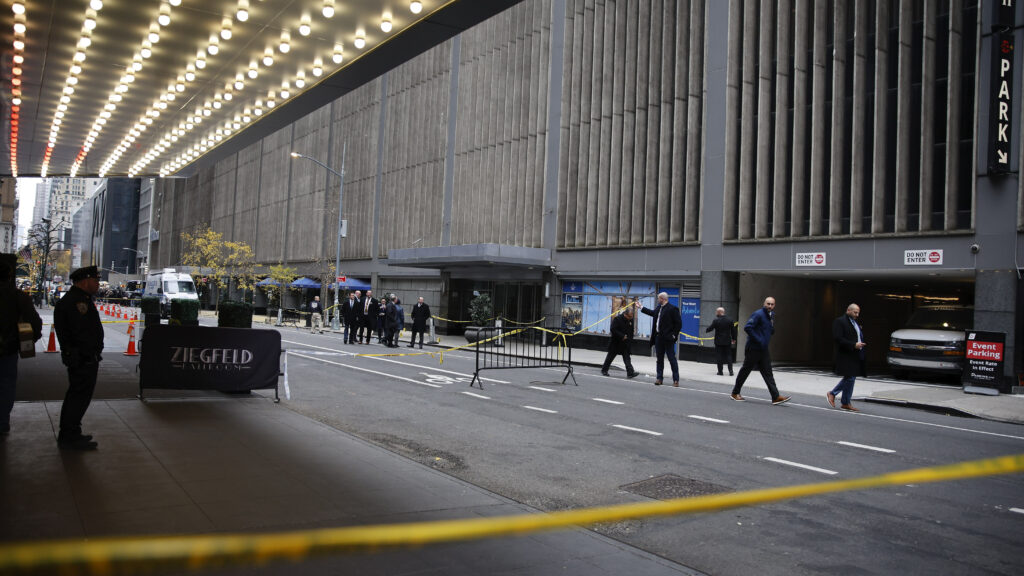The killing of Brian Thompson, the CEO of the insurance division of UnitedHealth Group, provided a window into the vitriol that prominent health care leaders have been facing.
Workers across health care face safety risks. People employed in the industry are about five times more likely than people in other private industries to experience workplace violence, according to federal data.
advertisement
In recent years, the threat level seems to have risen for health care executives. Following the backlash against Covid-19 vaccines, Moderna and Pfizer began spending significantly on the personal safety of their leadership. For instance, as of 2023, Moderna spent over $1 million on executive protection for its CEO, Stéphane Bancel, and Pfizer spent $800,000 to protect CEO Albert Bourla, according to the companies’ regulatory filings.
Enhanced security for named executives is less common among health insurance companies: Centene noted it as an expense for 2022, but didn’t disclose it as a specific expense last year. CVS said in a filing that its then-CEO used a corporate driver when she traveled as part of its “executive security program.” Elevance doesn’t list separate security expenses. UnitedHealth said in a filing that its CEO, Andrew Witty, is required to travel on company aircraft for his security, but the insurer didn’t otherwise report personal security expenses for its executives.
Thompson’s wife, Paulette Thompson, told NBC News her husband had received threats. The New York Police Department said in a press conference on his killing that, based on an initial assessment, he didn’t appear to be traveling with a security detail. UnitedHealth did not comment on the company’s security measures. NYPD officials said the killing appeared to be targeted, but they have not identified a motive or named a suspect.
advertisement
A longtime UnitedHealth executive who left the company about 10 years ago said the company’s executives commonly received threats from people with grievances about UnitedHealth’s coverage policies. The executive, who asked to remain anonymous to discuss a sensitive topic, said unauthorized people would come to the company’s sprawling headquarters in the Minneapolis suburb of Minnetonka and try to enter the buildings where executives’ offices are located. Years ago, employees entered the buildings using their badges, but the company added security checkpoints on the ground floor when the threats became more common.
“There were people who would go to corporate and try to bust through,” the former executive said.
In a press conference on Wednesday, NYPD Commissioner Jessica Tisch called Thompson’s killing a “brazen, targeted” attack from a suspect who appeared to wait for him outside a Manhattan hotel before shooting him in the back and leg.
“We are looking at everything. We’re looking at his social media. We are interviewing employees. We are interviewing family members,” NYPD Chief of Detectives Joseph Kenny said during the briefing.
Whether or not social media holds clues to the killing, some reactions to the news shared on social media showed a lack of empathy for Thompson. In particular, online snark referenced UnitedHealth’s claim denial practices, with some users making dark jokes or suggesting the death may have been retribution for patients who were unable to get care when the insurer declined to pay for it.
For a former health insurance executive, Thompson’s killing was a chilling reminder of the security threats he and his peers face.
“What happened today is sobering,” Michael Sherman, former chief medical officer for Point32Health, told STAT. “It’s hard not to look at that and ask the question whether executives at health insurance plans should have a higher level of personal security.”
During Sherman’s time at Point32Health, an insurer with a network of 2.2 million customers across the Northeastern U.S., he saw security measures ramp up after a new CEO prioritized precautions starting in 2021. In addition to security at the building entrance, the insurer hired a separate security detail to guard its executive suite, and it restricted access to the suite to those with a keycard.
advertisement
He also recalled that Point32Health had panic buttons installed in executive offices, and that spaces within some of these offices were transformed into fortified safe rooms.
Sherman, who is now a venture capitalist at RA Capital, added that security never accompanied him while traveling for work; Thompson was killed while attending an annual investor conference.
At the time, he said, the company’s security measures seemed excessive. But now, he’s not so sure, and he worries Thompson’s killing could inspire copycat attempts. While the motive behind the shooting is for now unclear, Sherman points out insurance companies often make coverage decisions that rankle patients.
“It doesn’t seem paranoid to worry that someone who’s had services denied that they may believe are important might be in an emotionally unstable state and could take some action,” he said. “The most likely targets would be the chief medical officer … or the CEO.”
Tara Bannow contributed reporting.

